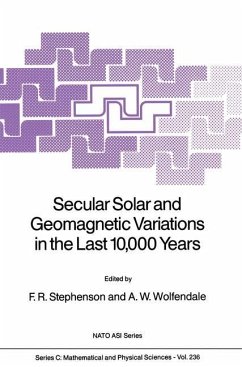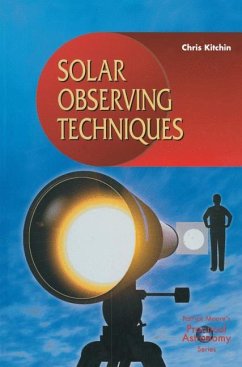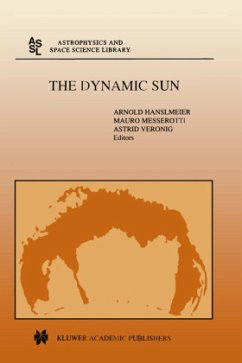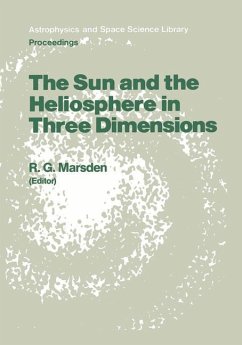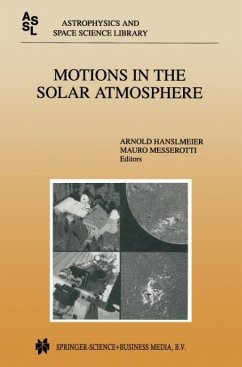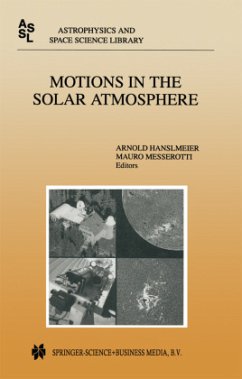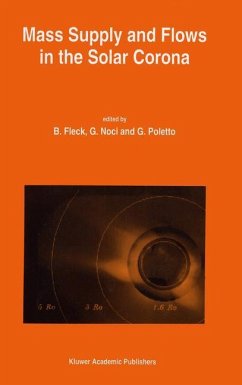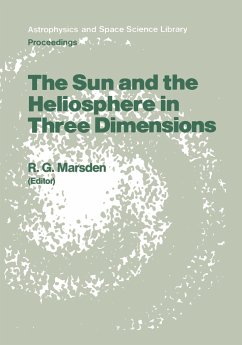
The Sun as a Variable Star: Solar and Stellar Irradiance Variations
Proceedings of the 143rd Colloquium of the International Astronomical Union held in the Clarion Harvest House, Boulder, Colorado, June 20-25, 1993
Herausgegeben von Pap, Judit M.; Fröhlich, Claus; Hudson, Hugh S.; Tobiska, W. Kent

PAYBACK Punkte
19 °P sammeln!
The IAU Colloquium No. 143 "The Sun as a Variable Star: Solar and Stellar Irradiance Variations" was held on June 20 - 25, 1993 at the Clarion Harvest House, Boulder, Colorado, USA. The main objective of this Colloquium was to review the most recent results on the observations, theoretical interpreta tions, and empirical and physical models of the variations observed in solar and stellar irradiances. A special emphasis of the Colloquium was to discuss the results gained on the climatic impact of solar irradiance variability. The study of changes in solar and stellar irradiances has been of hig...
The IAU Colloquium No. 143 "The Sun as a Variable Star: Solar and Stellar Irradiance Variations" was held on June 20 - 25, 1993 at the Clarion Harvest House, Boulder, Colorado, USA. The main objective of this Colloquium was to review the most recent results on the observations, theoretical interpreta tions, and empirical and physical models of the variations observed in solar and stellar irradiances. A special emphasis of the Colloquium was to discuss the results gained on the climatic impact of solar irradiance variability. The study of changes in solar and stellar irradiances has been of high interest for a long time. Determining the absolute value of the luminosity of stars with different ages is a crucial question for the theory of stellar evolu tion and energy production of stellar interiors. Observations of the temporal changes of solar and stellar irradiances - in the entire spectral band and at different wavelengths - provide an additional tool for studying the physical processes below the photosphere and in the solar- stellar atmospheres. Since the Sun's radiative output is the main driver of the physical processes with in the Earth's atmosphere, the study of irradiance changes is an extremely important issue for climatic studies as well. Climatic models show that small, but persistent changes in solar irradiance may influence the Earth's climate.





